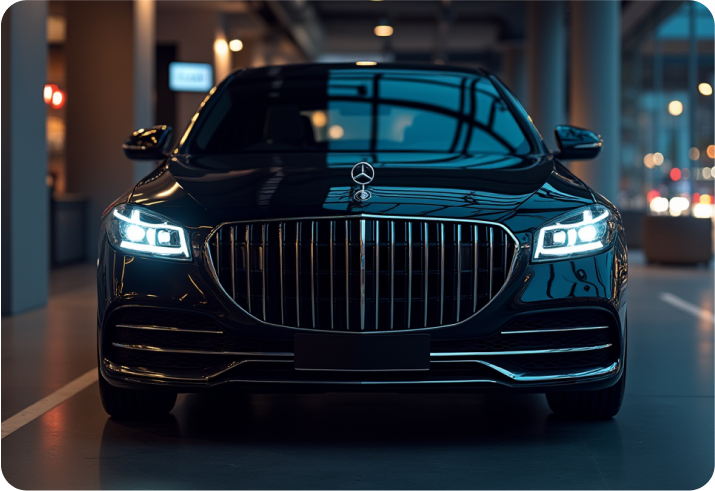Things to Consider while buying a Car Amplifier

An automobile amplifier can take many distinct forms. Diverse brands and models, all of which assert to provide the best sound, are abundant on the market. To give your factory car radio a more dynamic sound, you may easily add an aftermarket amplifier. But do you know What does a car amplifier do?The use of an amplifier not only increases the volume of your system but also enhances the detail and clarity of your music by maximising the performance of your speakers. There are many cars on the road today that have amplifiers already installed, but they aren't as strong as you may expect.
Choosing the appropriate amplifier for your setup might make or break it if you're overhauling your sound system. Your speakers shouldn't always be held accountable. Amplification is what you need, not bigger speakers if you turn up the volume and the music sounds flat. Your system might get a fresh start with a good automobile amplifier. There are a few technical issues to be aware of.
List of The Things to Consider while buying a Car Amplifier:
Here are a few of the most crucial things to take into account when selecting a car amplifier for your needs.
1. Compatibility with Your Car Stereo
The OEM stereo will typically let you install an amplifier, but it won't have preamp outputs to send the audio signal to the amplifier. Many amplifiers have "speaker-level inputs," which let you connect to the speaker wiring already in the car to pick up the signal. A DSP (digital signal processor) is a feature included in many amplifiers that enhances the stock audio.
2. RMS Wattage
The main factor you should pay attention to when buying a car amplifier is RMS wattage. The highest continuous power output of the amplifier without distortion is indicated by the RMS rating. It is advised to disregard PEAK ratings because they are frequently wrong and primarily promotional hype. If you already own the speakers, check their RMS rating before selecting the amp with the maximum RMS output per channel (no greater than the RMS rating of each speaker, though). Looking to buy new speakers to go with your amplifier? Select speakers with RMS grades that are at least as high as the maximum RMS output of each amplifier channel.
Simply match the output of the amplifier to the lesser of the RMS ratings if you are purchasing many pairs of loudspeakers with different RMS wattage ratings and only one amplifier.
Also Read: Bluetooth: What is it? What is in-car connectivity?
3. Ratio of speakers to channels
For every speaker you wish to power, you'll need one channel of amplification, however depending on the configuration you require for your setup, amps are flexible. A 4-channel amp, for instance, might power two speakers and a subwoofer connected to a bridged channel, which would combine two channels into one more potent channel. A 5-channel amplifier would be great if you were planning on using four loudspeakers and one or two subwoofers.
4. Speaker Power
In essence, a subwoofer is a sizable speaker that emits bass. Therefore, while taking into account RMS wattage, the same guidelines apply. The top RMS power of the amp should be similar to or slightly lower than the top RMS power of the sub. Make sure the sub amp you're contemplating has the impedance ratings you require because a single amp's resistance to electrical charge will change if multiple subs are linked to it.
5. Amount of channels
How many channels should my system have? That depends on the number of speakers you have. You will require more channels as you have more speakers. Every speaker will typically require its own channel. Mono-block or single channel amplifiers are appropriate if you're adding a subwoofer.
But multi-channel amplifiers offer greater flexibility. Using a two-channel amp as an illustration, two speakers and two subs can be powered. A single subwoofer could also be powered by bridging the amplifier.
A multi-channelcar audio amplifier, as we previously discussed, may drive numerous speakers. You could, for instance, run your subwoofer off of a new mono-block amp while using the same 4-channel amp to power your other 4 speakers.
Also Read: Certified vs Non-Cerftified Used Cars
6. Power output
Are you aware of the maximum power output your speakers can control? Underpowered speakers are the main culprit for the dull, flat sound coming from your system. The general rule when assembling your automobile audio system is to pick your speakers first. Find the ideal amplifier after that to drive them.
Don't skimp and put your attention on constant power! The maximum power of the speakers your amplifier is attached to should be matched or exceeded. Make sure your speakers are rated for RMS power. Find an amplifier that really can output at least 75–150% of that rated power after that.
7. How it ties into your overall setup
Your expert vehicle audio store and the installer will be able to give you the inside scoop on what blends well. Your sleek new configuration also takes into account your in-dash head unit. Many companies promote themselves as being the greatest in certain areas. Working with an experienced professional can significantly reduce the uncertainty that comes with making a decision. You could conduct your own research, but we've already done it all. We can assist you in making the decision that best fits your overall setup.
These were all the things you need to consider while buying a car amplifier, and if you are wondering where you can get the Best car amplifier, Used Car amplifier or best 4 channel amp,you can buy it from the best car accessories store. If you’re looking for certified pre-owned cars, ABE is here to help you with a wide range of collection options.
FAQ’s
-
What is a good wattage for a car amplifier?
You should expect an amplifier with 50 to 200 watts RMS of power if it is the same as the stock radio in your car. However, you might prefer nearer to 200 to 300 watts RMS with an alternative receiver if you want to simplify your audio experience.
-
What happens if the car amp is not powerful enough?
By giving the speakers too much-elevated frequency energy and forcing the amplifier into clipping, you risk damaging the speakers if you don't have a strong enough amplifier to achieve the desired volume levels. Speakers are harmed by these harmonics' additional power.
-
How do I choose an amplifier for my car?
Find speakers to pair with the amp that has a top RMS score of at minimum 50 watts RMS. You should upgrade to a channel configuration with at least 75 watts RMS for bigger vehicles and people who just want additional loudness. It won't matter whether there is a 5 or 10-watt difference and it probably won't even be noticeable.
Read More Post:
1. An overview of electronic stability control
2. Low Engine Oil Causes and Symptoms
3. Warning Signs of Engine Failure You Should Not Ignore
 By Admin
By Admin









